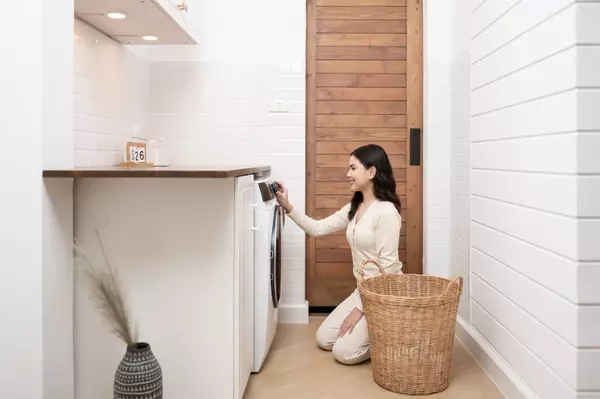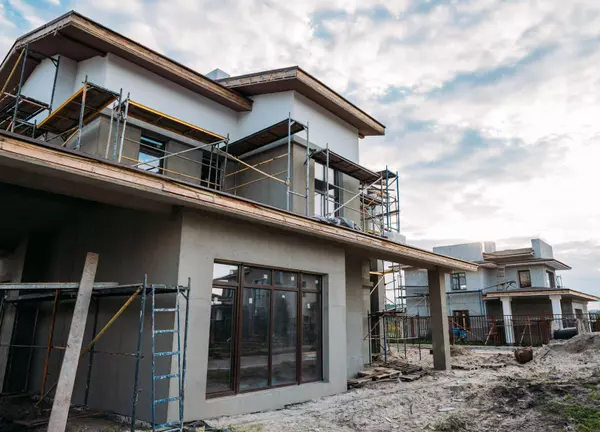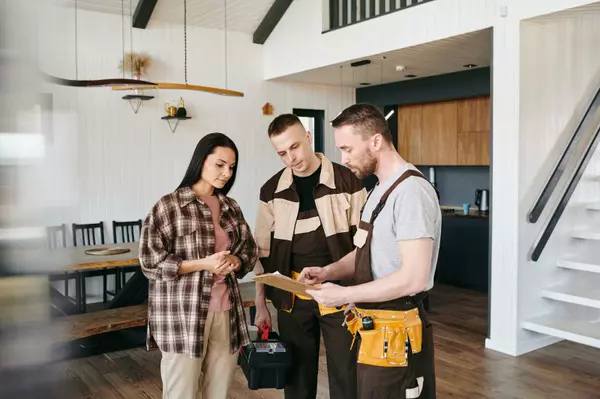12 Mistakes Buyers Make When Purchasing Real Estate

After years of experience working with buyers, I've seen these 12 issues firsthand. These mistakes could lead to major problems, so please speak to me if any of these apply to your next move.
Not Knowing Down Payment Requirements
Buyers will often say to me, "We really want to move but we don't have 20% to put down." There are so many loan programs out there that require very little (or nothing) down! Conventional loans come in at 5% while FHA loans require just 3.5% down.
Open House Visits Without an Agent
How many times do you see an open house and the curiosity of what's on the inside is too much to bear? Visiting open houses are a great way to familiarize yourself with what's available on the market but there is a huge risk in doing so. If you decide that the open house is your next home, you are stuck with the agent there as your representation. The problem though is that the agent was hired by the homeowner, so how much help are you really going to get? When it comes to negotiations, that agent isn't going to negotiate against himself.
To get around this problem, your very first words after "hello" should be, "We are working with an agent." I actually hand my buyers a stack of my business cards. That way, you're able to visit open houses all you'd like yet still have the protection of having me in your corner.
Going House Hunting Without a Preapproval From a Local Lender
A lender will gladly prepare a preapproval for you showing how much you can borrow based on your credit, income, and other financial factors. This is one of the most important pieces of paper you can have when house hunting! Knowing what you can spend prevents the disheartening problem of finding out the dream home you've picked out is more than you can afford to buy. I highly recommend three local lenders so contact us.
Buying Too Much Home
You wouldn't believe how many times I'll meet a couple with one child and hear, "We need 4 bedrooms." The reason most often cited is that the buyer has guests that come and visit. Financial guru Dave Ramsey will frequently tell buyers that for the price of those extra couple of bedrooms, you could put your guests up in the Ritz Carlton for the week that they visit.
Buying too much home can really hurt your wallet and it pains me to see my buyers become "house poor." Spending the maximum amount that you're approved for will certainly get you a fantastic house, yet it will almost certainly make life tougher and usually retirement savings take the hit.
Skimping on an Inspection Because of the Cost
This one kills me when I see it. Buyers will make the largest financial decision of their life and then decide the $500 inspection isn't worth the cost. My brother is a master carpenter, yet when he bought his home the inspector found issues that even he did not catch. Inspectors are trained and have a lot of practice. They will give an unbiased report of every issue in the home so that you can get them repaired by the seller. Don't spend hundreds of thousands of dollars on your next home and balk at the inspection price.
Using an Agent That Doesn't Know the Difference Between As-Is and Standard Contracts
Having an experienced and capable REALTOR® on your side is incredibly important. These two contracts (from the Naples Area Board of Realtors) have a very different way of handling inspections. In a standard contract, your inspector will give you a report and you notify the seller of which items need to be repaired before closing (or you request a cash amount). It would seem an As-Is inspection would mean you're taking the home with those problems. Not true! You can always ask the seller to make repairs because an as-is contract gives you as the buyer the option of walking away (and getting back your deposit) for any reason within the first 15 days. Sellers often concede and make the repairs regardless of the as-is contract because they don't want you to walk away from the deal.
Making a Big Purchase While Under Contract
Remember that preapproval letter? It is based on your financials at the time it was made. Therefore, going out and buying all of the new furniture for your home on credit, purchasing that new car, or applying for other loans can kill your deal! Always wait until you've closed on your home before making any large purchases!
Buying New Construction Without Us
You need an agent when you buy new construction! It's just that simple. The builder has agents and lawyers on their side, so why go in unrepresented? Having us on your side helps keep the builder honest and the quality of work to remain high. We monitor the build from start to finish and join you at all meetings and inspections. Furthermore, there is a lot of paperwork during the build process and we're on your side to ensure it is what you and the builder have agreed upon. I had a client purchase a brand new home and say to me at the closing, "I'm glad you were with us. I couldn't imagine buying this without your help."
Falling in Love With a Home
"I love it! Let's put in an offer" may be one of the sweetest phrases to speak and for me to hear! However, buyers should treat purchasing a new home as a business decision and not an emotional one. Rarely will you put in an offer and have it immediately accepted without a counteroffer. Buyers that get attached to homes can end up spending far more than what they decided their maximum would be due to emotion. When you set your maximum, stick to it. Trust me—another dream home will come on the market within your price range!
Talking to Only One Lender
Loan origination fees and interest rates can change from one lender to the next. It is incredibly important for you to apply with at least three lenders to make sure you're getting the best deal. A slight change in interest rates can lead to thousands of dollars over the life of your loan. Lenders usually have room to negotiate on their fees so let them know you are shopping around for a mortgage in order to get the best deal.
Buying a Home Before Rebuilding Credit
Waiting to buy a home is your best option when your credit isn't where you'd like it to be. Again, a slight change in interest means thousands of dollars difference in your loan. Rebuild credit, get a great interest rate on your mortgage, and get that dream home just a little later.
Using All of Their Savings to Purchase
Finally, you've worked hard to be in a position to buy a home and you've likely saved for months to have the downpayment and closing costs. Please do not spend it all to get a home. Closing on a home without savings left in the bank is an incredibly risky move. What if your air conditioner dies and you need $6,000 to replace it? Closing without money in the bank can lead to some disastrous consequences, so be sure to have some padding before purchasing your new home.
Looking for more guidance? Feel free to give us a call at no obligation!
Categories
Recent Posts










